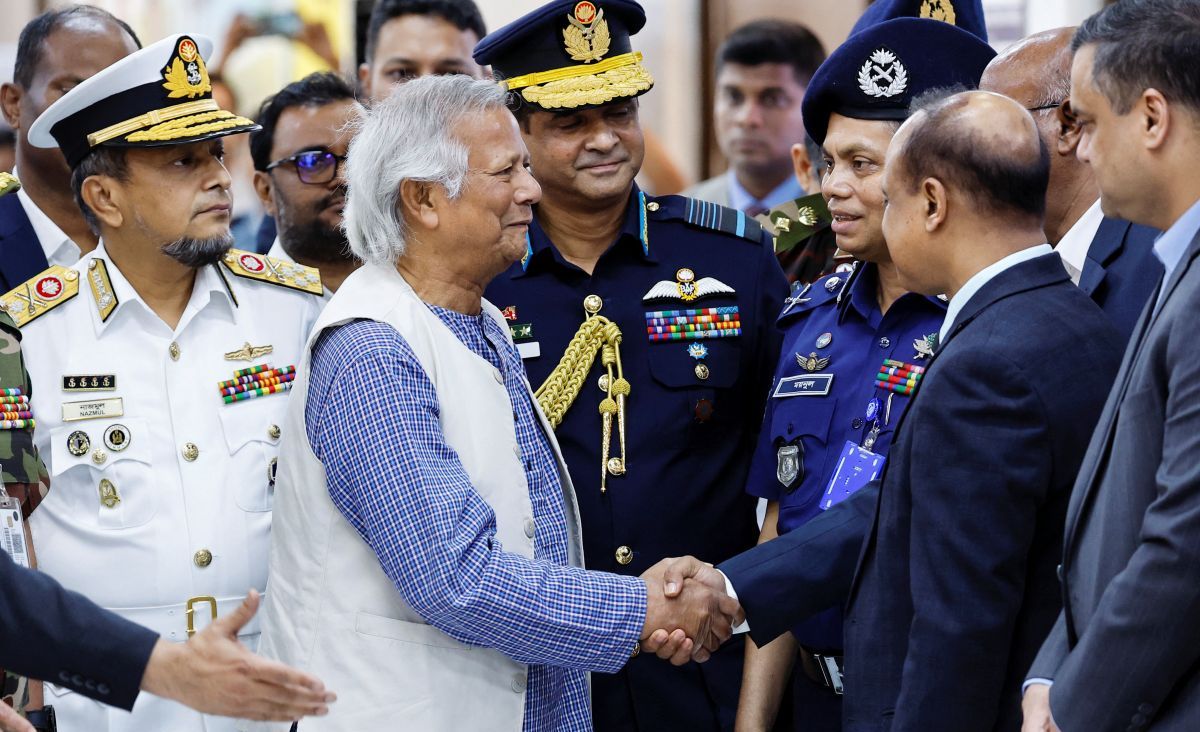Bangladesh is undergoing what has been described as a “student-led revolution” following the ousting of longtime Prime Minister Sheikh Hasina, according to the country’s new interim leader, Muhammad Yunus. The Nobel laureate made these remarks during a press briefing on Sunday, highlighting the dramatic shift in the nation’s political landscape.
“This is a revolution, a student-led revolution,” Yunus, 84, declared, emphasizing the magnitude of the recent events. “There’s no doubt about it because the business of the whole government collapsed.”
Yunus, who returned to Bangladesh from Europe last Thursday, was called upon by student leaders to lead the country through a period of democratic reforms following the ouster of Hasina. His return marks a significant moment in Bangladesh’s history, as the nation grapples with the aftermath of a leader who ruled with an iron fist for years.
“I respect you, I admire you. What you have done is absolutely unparalleled,” Yunus recounted, describing his conversation with the student leaders who requested his leadership. “‘Because you ordered me to do this, I take your order’,” he told them.
The wave of student protests that led to Hasina’s resignation also triggered a series of resignations among her top allies, including the former chief justice of the Supreme Court and the central bank governor. These officials, who had been pressured to step down by the students, resigned legally, according to Yunus.
“They want to have a new court,” Yunus said, referring to the students’ demands. “So they went there and asked the chief justice to resign and put their pressure to make him resign.” He expressed confidence that the students would find a legal basis for these actions, as all steps were conducted according to the law.
Hasina, 76, fled Bangladesh by helicopter as protesters took to the streets of Dhaka in massive numbers, marking the end of her long and controversial rule. Her government had faced numerous accusations of human rights abuses, including the extrajudicial killings of thousands of political opponents. “Finally, this moment, the monster is gone,” Yunus remarked, reflecting the sentiment of many in the country.
Despite the widespread support for his interim government, Yunus cautioned that difficult decisions lie ahead. “The moment you start taking decisions, some people will like your decisions, some people will not like your decisions,” he noted. “Obviously, that’s the way it works.”
Yunus made these comments during a media briefing on Sunday night at a state building currently serving as the temporary seat of government. His office approved the release of the remarks on Monday evening.
Yunus, who was awarded the Nobel Peace Prize in 2006 for his groundbreaking work in microfinance, credited with lifting millions of Bangladeshis out of poverty, now serves as the “chief adviser” to a caretaker administration. The government, composed entirely of civilians except for a retired brigadier general, is tasked with guiding the country through a tumultuous period.
Yunus has indicated his intention to hold elections “within a few months,” signaling a move towards restoring democratic governance in Bangladesh.









































